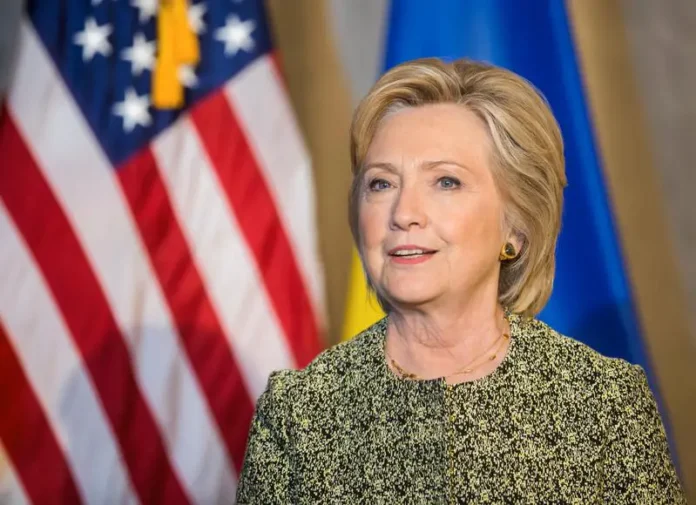In a notable security incident, key Trump administration officials accidentally shared classified military strategies with a journalist. Secretary of State Hillary Clinton was amazed.
“You have got to be kidding me,” Clinton wrote on March 25 on social media, accompanied by a rolling eyes emoji and a screenshot of the article. Her reaction followed Jeffrey Goldberg’s report in The Atlantic about inadvertently being included in a chat where officials discussed military actions in Yemen.
Goldberg detailed receiving a Signal connection request from Michael Waltz, identified as Trump’s national security adviser. Subsequently, he was added to a group titled “Houthi PC small group,” which involved high-ranking officials planning military operations.
The chat reportedly included 18 individuals, such as Vice President JD Vance, Secretary of State Marco Rubio, Director of National Intelligence Tulsi Gabbard, Treasury Secretary Scott Bessent, and CIA Director John Ratcliffe.
Brian Hughes, a spokesman for the White House National Security Council, verified the authenticity of the message thread in Goldberg’s report. He stated an investigation was underway to determine how an unintended number was added and described the thread as coordinating senior officials with no threats to servicemembers or national security.
Goldberg reported that Defense Secretary Pete Hegseth shared operational details regarding impending airstrikes in Yemen, including weaponry, targets, and timing, shortly before attacks occurred. Initially doubtful, Goldberg was convinced of the chat’s authenticity when explosions were reported in Sanaa at the specified time.
When asked by reporters, Hegseth denied disclosing war plans. However, in an MSNBC interview, Goldberg asserted that the chat contained minute-by-minute details of the planned CENTCOM operation.
The incident has attracted criticism from Democrats and raised questions about the Trump administration’s handling of sensitive data. Senator Richard Blumenthal of Connecticut urged Republican peers to take the issue seriously, calling it “appallingly fundamental” and “staggering.”
Some Republicans have minimized the security breach’s impact. House Speaker Mike Johnson remarked that the leak showed officials performing their duties without jeopardizing anyone, and the administration acknowledged the mistake, committing to prevent recurrence.
President Trump, not appearing in the group chat, initially distanced himself from the incident, claiming ignorance and expressing a negative view of The Atlantic.
However, in a later phone interview, Trump defended Waltz, stating: “Michael Waltz has learned a lesson, and he’s a good man.” He described the situation as the only glitch in two months that wasn’t serious.
The breach has underscored perceived hypocrisy, as some involved officials had previously criticized Clinton for her use of a private email server during her tenure as Secretary of State. Clinton’s email practices became a pivotal issue in the 2016 presidential campaign.
Clinton’s use of a private server led to controversy and an FBI investigation, which concluded that Clinton and her staff were extremely careless but no criminal charges were appropriate. The investigation became a major issue during the 2016 election, with allegations of deleted emails and evidence destruction.
FBI Director James Comey stated in July 2016 that despite potential violations regarding classified information handling, no reasonable prosecutor would bring such a case. Clinton later stated the FBI investigation contributed to her electoral defeat.
Fallout from the Signal chat incident continues, with questions about whether Waltz will retain his position. There are reports of debate within Trump’s circle over possible consequences for Waltz.
White House Press Secretary Karoline Leavitt reaffirmed the president’s support, stating Trump maintains confidence in his national security team, including Waltz, and considers the attacks on the Houthis successful and effective.
The Senate Intelligence Committee has received testimony from officials implicated in the Signal leak, including Gabbard and Ratcliffe, who appeared on Capitol Hill to provide their perspectives on national security issues.
Following the denials from the Trump administration, The Atlantic published the chat messages Goldberg was privy to.

